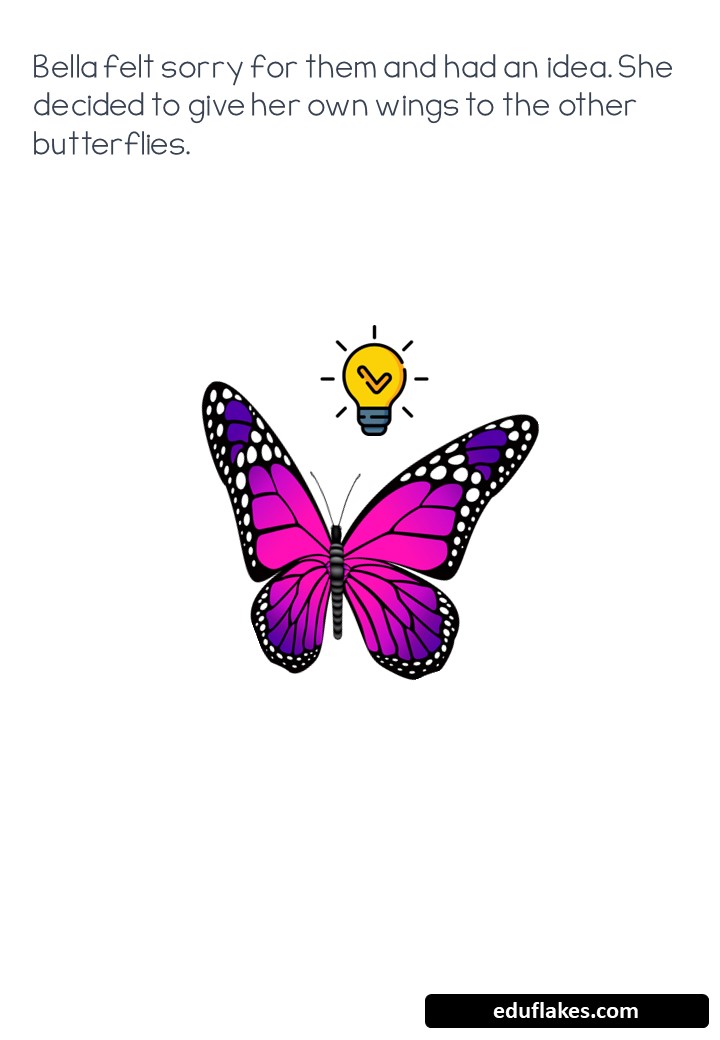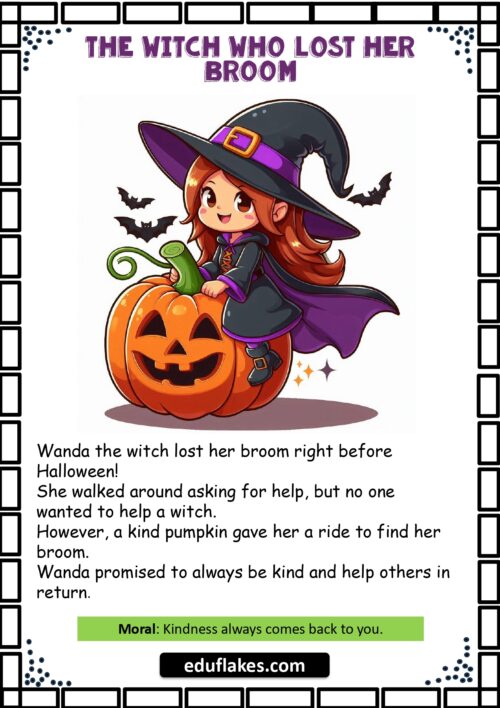Bella , the kind butterfly – Kindergarten story
Kindergarten stories play a crucial role in a child’s development, as they help foster language, cognitive, and social-emotional skills. Through storytelling, children are introduced to new concepts, ideas, and perspectives that help broaden their horizons and develop their imagination. Additionally, stories provide a platform for children to engage with their peers and teachers, promoting social interaction and the development of critical thinking skills. In this article, we will discuss the importance of kindergarten stories and the role of teachers in storytelling.
Importance of Kindergarten Stories:
- Language Development: Stories are an excellent way to introduce children to new vocabulary, sentence structures, and grammatical concepts. Through storytelling, children can expand their language skills and develop a deeper understanding of how language works.
- Cognitive Development: Stories also help to develop children’s cognitive skills by promoting memory retention, problem-solving, and critical thinking. As children listen to stories, they are required to process and interpret information, which helps to improve their cognitive abilities.
- Social-Emotional Development: Kindergarten stories also play an important role in developing a child’s social-emotional skills. Stories help children to understand and express emotions, develop empathy, and learn important social skills such as taking turns and sharing.
- Imagination and Creativity: Stories encourage children to use their imagination and creativity, as they visualize the characters and events in the story. This helps to develop their creativity and problem-solving skills, as they think of new and unique ways to solve problems and overcome challenges.
Role of Teachers in Storytelling:
- Choosing Appropriate Stories: Teachers play a crucial role in selecting stories that are age-appropriate, engaging, and relevant to the children’s experiences. The choice of story should be based on the children’s interests, as well as their developmental needs.
- Creating a Safe and Supportive Environment: Teachers need to create a safe and supportive environment where children feel comfortable sharing their thoughts and feelings. This involves building a positive relationship with each child and creating a non-judgmental atmosphere where everyone feels valued and respected.
- Active Listening: Teachers should actively listen to the children as they share their thoughts and feelings about the story. This involves asking open-ended questions and encouraging children to express their opinions and ideas.
- Using Props and Visual Aids: Props and visual aids, such as pictures and puppets, can be used to enhance the storytelling experience and engage children’s senses. These aids can help to create a more immersive experience for the children and promote their imagination and creativity.
- Encouraging Participation: Teachers should encourage children to participate in the storytelling process, such as by asking them to act out a scene from the story or by creating their own endings to the story. This promotes active learning and helps children to develop their critical thinking skills.
In conclusion, kindergarten stories play a critical role in a child’s development, and teachers play an essential role in the storytelling process. By selecting appropriate stories, creating a safe and supportive environment, actively listening, using props and visual aids, and encouraging participation, teachers can help to create a rich and engaging learning experience for children.













